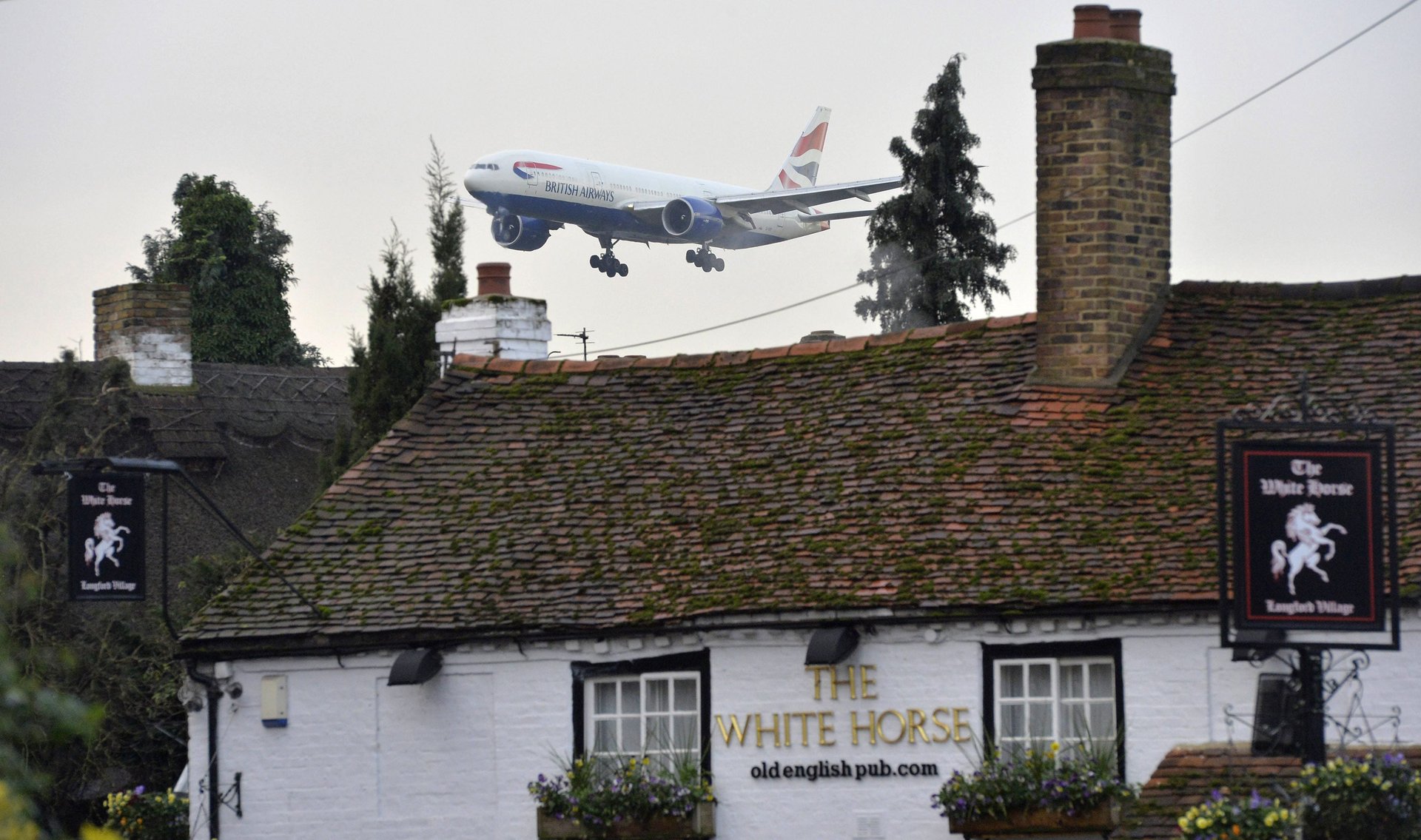The future is looking very shaky for London’s Heathrow Airport
There’s turbulence ahead for the UK’s most bustling airport.


There’s turbulence ahead for the UK’s most bustling airport.
As the UK grapples with a tumbling currency and economic uncertainty following a historic vote to leave the European Union last week, Heathrow Airport has been slipping in the ranks of the world’s busiest airports as international hubs like Japan and Dubai expand.
The number of passengers boarding and disembarking aircraft at Heathrow grew by a meager 0.3% last year from 2014—to just under 75 million people—and knocking the airport down three spots to sixth, according to preliminary figures from the Airports Council International, an industry group.
Dubai International Airport overtook Heathrow as the busiest airport based on international passenger traffic in 2014, a top slot the Emirates Group hub held on to last year as well, according to the data.
But even within Europe, Heathrow is losing its primacy. Takeoffs and landings at Paris’s Charles de Gaulle Airport last year grew three times as fast as Heathrow’s, pushing London’s main airport down a notch to the eleventh spot from no. 10 a year ago.
The political fallout of the vote has called into question whether outgoing prime minister David Cameron and lawmakers will greenlight a proposal for a contentious third runway at Heathrow. One of the biggest opponents to the project was London’s ex-mayor Boris Johnson, a leader of the Leave campaign and Cameron’s possible successor.
And now, Heathrow, like other airports in the UK, must deal with the aftermath of the Brexit vote. A weaker British pound makes it less desirable to travel abroad for Brits. And, already, airlines are warning about the impact. Investors aren’t taking it well.
Low-cost carrier easyJet warned Monday (June 27) that it expects weaker per-seat revenue for the second half of the year following the Brexit vote, adding to already “challenging” conditions due to a labor strike of French air traffic controls and weaker demand. That statement came after British Airways parent, International Consolidated Airlines Group, on Friday lowered its profit forecasts.